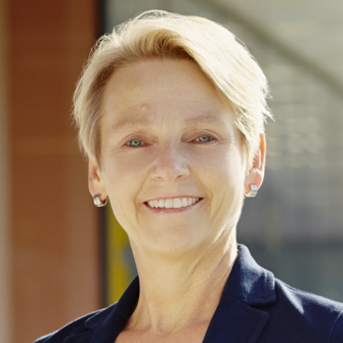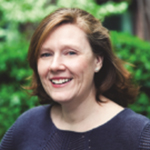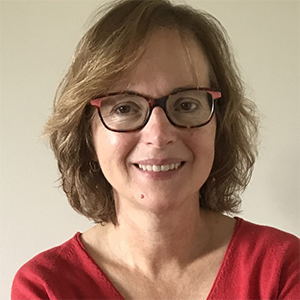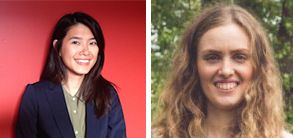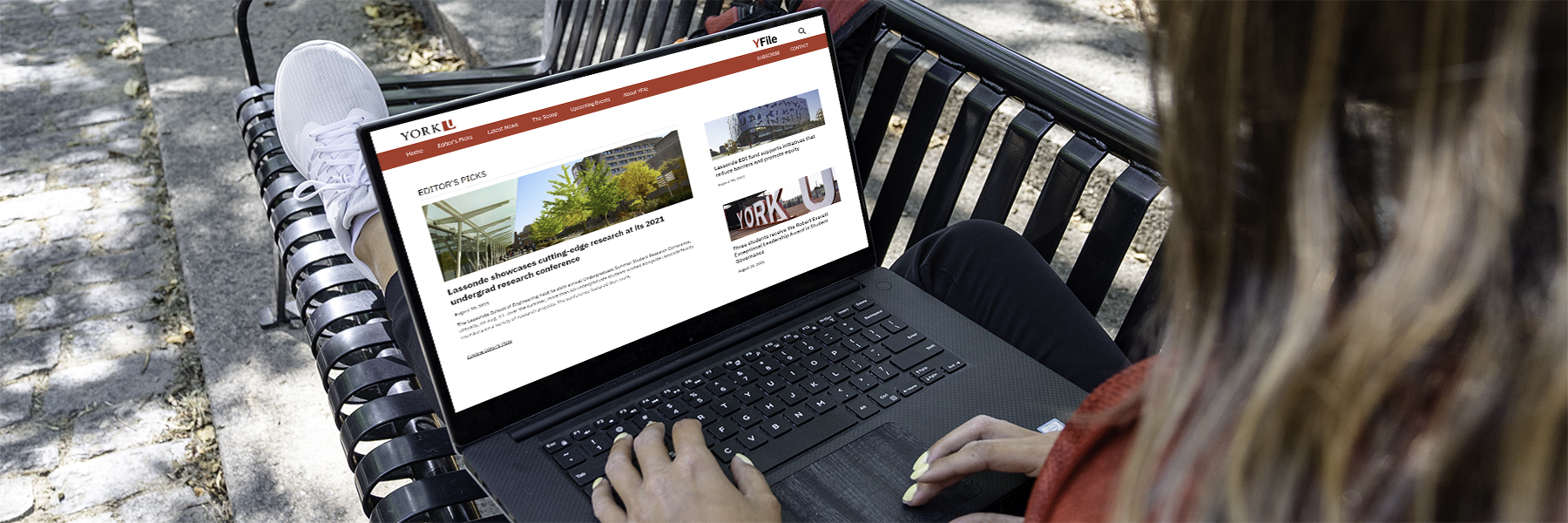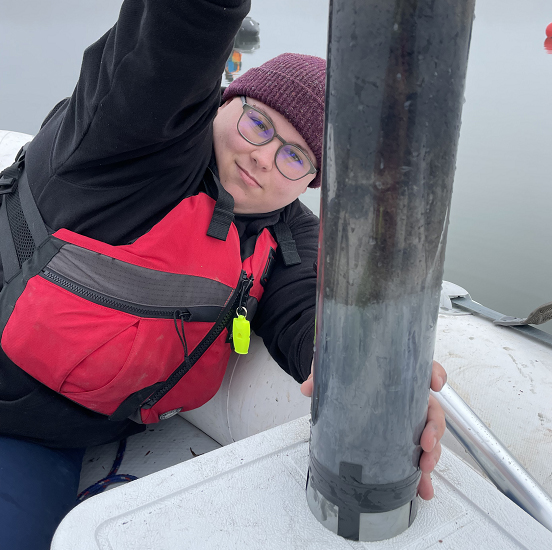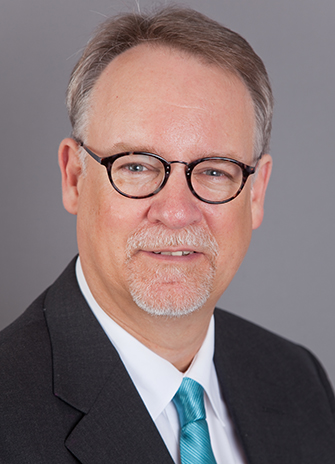York University will host the inaugural CivicLabTO Academic Summit on Toronto’s post-pandemic recovery on Nov. 23 and 24.
The conference will be held in partnership with the City of Toronto. Joining York University and the City of Toronto in the CivicLabTO Academic Summit are eight other higher education institutions. The two-day event is free and will be held in a virtual format.
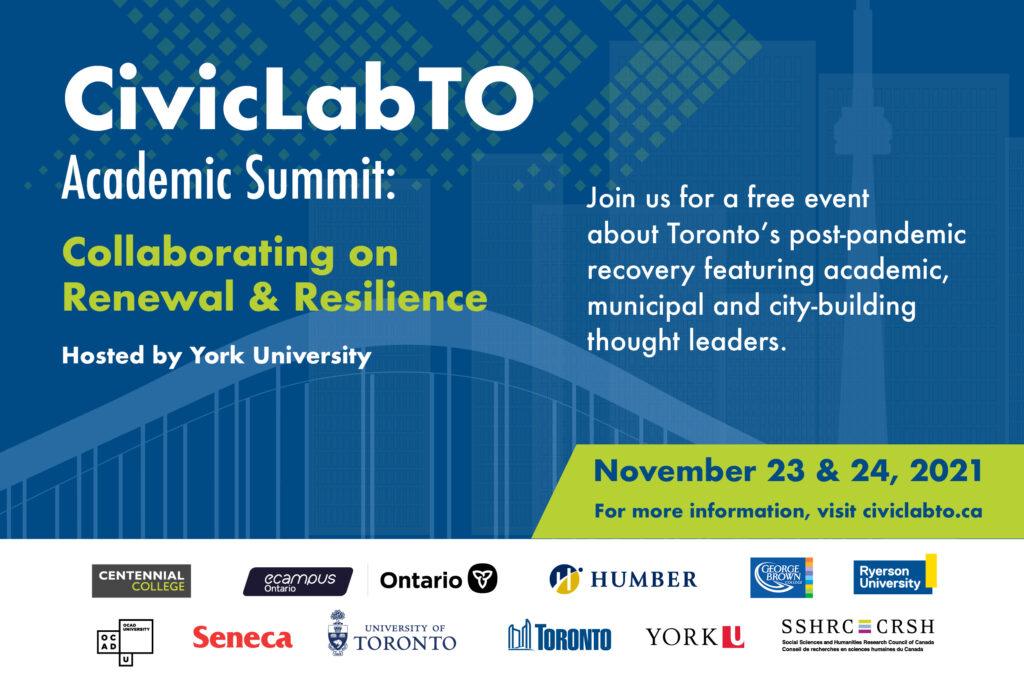
“York University will host the inaugural CivicLabTO Academic Summit on Toronto’s post-pandemic recovery, renewal and resilience,” said York University President and Vice-Chancellor Rhonda L. Lenton. “At York, we know that our success in affecting the kind of systemic changes necessary to build inclusive, resilient and safe communities relies on our ability to collaborate with government, community organizations, the private sector and other institutions of higher education. And York has a lot to contribute to these partnerships – including significant expertise in the fields of inequality, climate change, the environment, homelessness, and health and health governance. We look forward to working together with our CivicLabTO partners to ensure that the diverse community of Toronto continues to flourish.”
CivicLabTO program features more than 60 presenters through 13 sessions plus student-led arts and cultural programming. These sessions will highlight how collaboration between academics and city government can ultimately lead to stronger public policy in the ever-changing urban environment with a focus on greater equity and inclusion.
The following thematic areas form the pillars of the City of Toronto’s coordinated recovery and rebuilding efforts, while also serving as the focal point for the academic summit sessions:
- Public Health
- Planning and Adapting Public Space
- Stronger, Safer, More Just Communities
- Arts, Culture, and Recovery
- Housing and Health
- Transit and Transportation
- Technology, Innovation, and Equity
- Climate Change and Green Recovery
- Economic Resiliency
As a connecting thread, interwoven throughout the summit, the panel discussions will speak to the equity-related work and opportunities within these thematic areas and address important questions such as:
- How is an equity perspective central to and/or considered in the work you are speaking to today?
- What are examples of tools or approaches you are using to integrate a population focus, neighbourhood focus, and other equity-related considerations to this work?
- Are there any data gaps present in this space, particularly if we are going to make an impact on Toronto residents, given the inequities we know exist?
- Whose voice is and needs to be at the table to ensure full perspectives?
A focus on equity will be essential to Toronto’s approach to recovery and its ability to build resilience. Prior to the onset of the COVID-19 pandemic, the City of Toronto, while working with its partners, had developed and implemented various strategies and commitments to ensure Toronto is a leader in fairness and equity. COVID-19 has highlighted existing inequities through the disproportionately negative social, economic, and health impacts on vulnerable communities, potentially setting back the progress that was being made through the implementation of Toronto’s varied actions. As the city and post-secondary institutions enter into the recovery phase, unless there is a focus on equity and inclusion, the very people who were disproportionately affected by stresses before the pandemic will become more vulnerable.
To learn more or to register for this virtual event, visit the CivicLabTO website.




